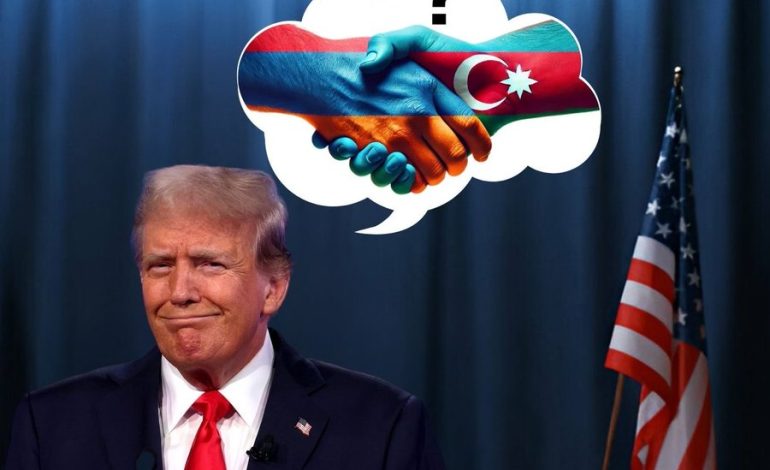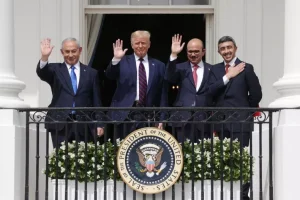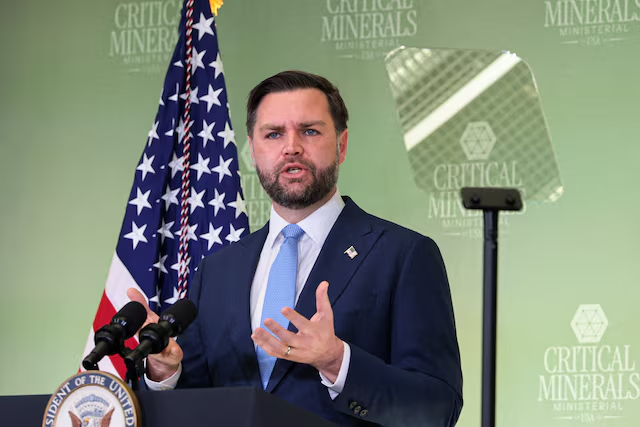ANALYSIS: Don’t Mix Peace Talks with Politics. Why Tying Armenia-Azerbaijan Deal to Abraham Accords Could Backfire.

Whispers out of Washington suggest something big might be brewing in the South Caucasus. According to reports, President Trump is expected to host a high-stakes meeting this Friday with Armenian Prime Minister Nikol Pashinyan and Azerbaijani President Ilham Aliyev, possibly to announce a breakthrough peace agreement. Sounds promising — except there’s a twist.
Some sources say that Azerbaijan’s entry into the Abraham Accords, the Trump-era framework for Middle East normalization with Israel, may be conditioned on striking peace with Armenia. And that’s raising eyebrows across the region — and not in a good way.
Here’s the problem: while peace between Armenia and Azerbaijan is absolutely worth pursuing, trying to tie that process to the Abraham Accords is a political gamble that could backfire on everyone.
The Abraham Accords are about normalizing ties between Israel and Muslim-majority nations. Azerbaijan already checks that box — and then some. It has had a long-standing strategic partnership with Israel, built on real defense and energy cooperation. If anything, Baku’s relationship with Tel Aviv is a model in the Muslim world.

Armenia, on the other hand, isn’t part of this equation. It’s not a Muslim country, doesn’t play a role in the Israeli-Palestinian issue, and has historically had close ties with Iran — Israel’s top regional foe. So why is peace with Armenia suddenly a requirement for Azerbaijan to join a club it’s already halfway in?
Let’s be clear: no one made Morocco patch things up with Algeria before joining the Abraham Accords. Holding Azerbaijan to a different standard — especially given its close ties with Israel — smells like politics, not diplomacy. It risks turning the Accords from a bold, game-changing alliance into a box-checking exercise that dilutes their impact.
If peace with Armenia becomes a prerequisite for Abraham Accords membership, Iran suddenly gains leverage. Tehran could easily derail negotiations through proxies or regional provocations. It already maintains strong ties with Armenia and views Azerbaijan’s alliance with Israel as a threat. Giving Iran a stake in a peace process it opposes is like handing the arsonist the matchbox.
The Armenia-Azerbaijan conflict has deep historical roots going back to the Soviet era. It’s about territory, identity, and post-war realities — not about Israel. That process needs to be handled delicately, with diplomacy tailored to the Caucasus — not repurposed from the Middle East playbook.
As Azerbaijani President Aliyev recently said, Armenia could benefit economically from regional cooperation once peace is signed. That should be incentive enough — not an imposed condition from faraway frameworks.
So far, neither the White House nor the State Department has confirmed the rumored meeting. Armenian officials are also staying mum, only saying that no official announcement has been made. But with US senators like Steve Daines hyping a “landmark peace deal,” it’s clear something is cooking behind the scenes.
That’s all the more reason to keep these two tracks — Caucasus peace and the Abraham Accords — separate. Otherwise, Trump’s effort to broker a lasting resolution in the region risks getting tangled in a web of mixed signals and unintended consequences.
Azerbaijan and Armenia deserve a shot at real peace. But don’t jeopardize it by adding preconditions that serve unrelated political goals. Let the South Caucasus stand on its own diplomatic path — and let the Abraham Accords continue doing what they were meant to do: normalize ties between Israel and the Muslim world, without forcing unrelated conflicts into the mix.









The latest news in your social feeds
Subscribe to our social media platforms to stay tuned